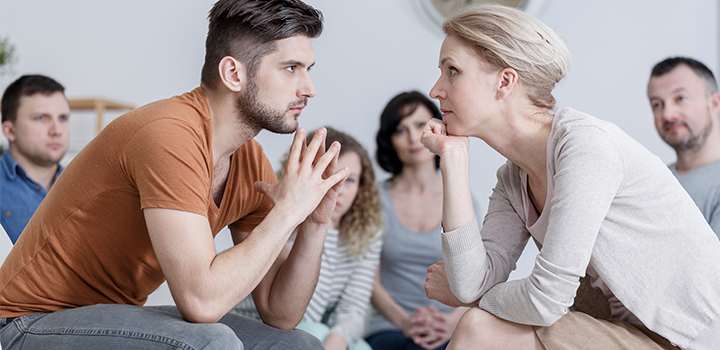Cassey Chambers: How to help your teenager manage their mental health during COVID-19 and beyond

How can you help your teenager cope with the stress and anxiety around COVID-19? Cassey Chambers, operations director at the South African Depression and Anxiety Group, shares advice for parents on how to spot signs of anxiety and support their teens.
"When children and teenagers watch news on TV about the 2019 coronavirus and the global pandemic, they too can feel scared, confused and anxious as adults do," says Cassey Chambers, operations director at the South African Depression and Anxiety Group.
In this podcast, Cassey shares tips and tools for parents on some of the common ways teens can react to the virus, how to help them manage their emotions, and when to seek support.
Listen to the podcast:
Signs that your teenager is struggling
“As adults, we can express and acknowledge how we’re feeling, but often for teenagers it can be more difficult to express their emotions. They don’t always know what to name or label those emotions,” Cassey explains.
How do teenagers react to COVID-19?
“They might be doing things to demand your attention or want to spend more time with you. They may stop doing schoolwork or chores or the usual routine things they’re supposed to do. Some teenagers may feel helpless and guilty because they’re worried about other people. They can have a rollercoaster of emotions. They may deny their feelings or become silent, even though they’re feeling upset. They might have more physical aches and pains related to anxiety, for example stomach or digestive problems, headaches and trouble sleeping.”
While some of this can be normal behaviour for teenagers, Cassey advises: “As parents, you know what’s normal behaviour for your teenagers, so if it is out of the norm, it is a red flag and you should definitely talk about it.”
“If any of these signs or behaviour lasts for more than two to four weeks, they may need help in coping with how they’re feeling,” she adds.
How to support your teens through COVID-19 and beyond
Cassey shares the following advice on how parents can keep their teens physically and mentally healthy:
- Help them feel more connected, cared about and loved.
- Pay attention and be a good listener.
- Encourage them to express their feelings in different ways – writing, drawing, playing, singing, moving – anything that allows them to open up.
- Let them know it’s okay to feel sad, upset, stressed or worried. Crying is a very healthy way to relieve stress and grieve.
- Allow them to ask questions, and ask them what they know about the pandemic.
- Try to watch the news coverage and updates with your child so you can talk about it.
- As parents, you can limit and filter how much information your child has about the virus.
- Make sure you’re not always talking about COVID-19. Encourage positive activities and limit screen time to not get lost in social media. “Too much screen time can increase anxiety and depression,” Cassey adds.
The South African Depression and Anxiety Group (SADAG) is a non-profit organisation that can give support for various challenges. They offer support groups as well as free telephonic counselling 24 hours a day, 7 days a week. Call them toll free on 0800 12 13 14 or send an SMS to 32312.
SADAG offers a helpline dedicated to Discovery clients. You can call their toll-free number on 0800 01 02 03. No SMS line is currently available.
Listen to the podcast for more advice on how to help teens cope with COVID-19, then listen to the rest of our COVID-19 podcasts. Stay informed. Stay healthy.
All medical information found on this website including content, graphics and images, is for educational and informational objectives only. Discovery Health publishes this content to help to protect and empower all South Africans by promoting a better understanding of COVID-19.
Find a healthcare professional near you
Find a doctor or hospital near you online or by using the Discovery app.
Related articles

Outbreak of the 2019 novel coronavirus
The 2019 novel coronavirus (2019-nCoV) has caused an outbreak of fatal respiratory illness first detected in Wuhan, China. This is a completely new strain with no vaccines available. The best way to prevent infection is to avoid being exposed to this virus.

Understand the Novel Coronavirus (COVID-19) and prevent infection
No country is immune to the spread of the Novel Coronavirus - officially named COVID-19 by the World Health Organization (WHO). The outbreak has reached pandemic proportions and been declared a global public health emergency.

Novel Coronavirus - wash your hands of the threat
As toddlers, we learnt to wash our hands. But, did we ever master the skill to the extent that is needed to wash pathogens off our hands, and save lives? Multiple studies show people don't wash their hands at the right times, in the right way or for the right amount of time. We contaminate the things and people we touch with the germs we carry on our hands.